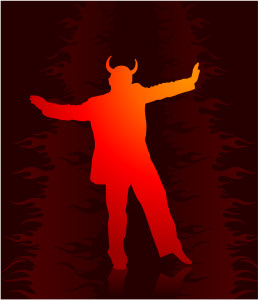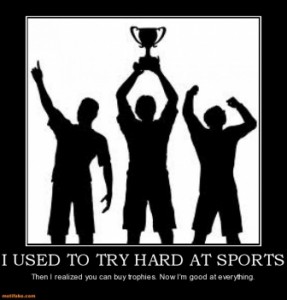 Your ExitMap Blog
Your ExitMap Blog
Exit Planning Articles Focused on Improving Value
Build: Improving Value
Enhancing the value of your business takes on new importance when you are looking at cashing out. How do you secure employees and customers? How do systems and processes affect your sale price? What specific areas of improvement will make your business more attractive?
Enhancing the value of your business takes on new importance when you are looking at cashing out. How do you secure employees and customers? How do systems and processes affect your sale price? What specific areas of improvement will make your business more attractive?
Most Recent Your ExitMap Blog Articles
The Third Entrepreneurial Sin -- Sloth This week we begin discussing the tactical sins. They are those habits of a business owner that impact day-to-day operations; Sloth, Wrath and Greed. To read this series from the beginning, start here. Few business owners would acknowledge that they suffer from Sloth. Most work very hard. To paraphrase an old New Yorker cartoon, “The thing I like best about self-employment is that I can make my own hours. I’ve chosen to work 24 hours a day.” (Also, see Lust.) Sloth in your business isn’t a disinclination to put in the effort. It’s the sin of settling for “good enough.” If your sales are flat, margins are ... Read more This week we begin discussing the tactical sins. They are those habits of a business owner that impact day-to-day operations; Sloth, Wrath and Greed. To read this series from the beginning, start here. Few business owners would acknowledge that they suffer from Sloth. Most work very hard. To paraphrase an old New Yorker cartoon, “The thing I like best about self-employment is that I can make my own hours. I’ve chosen to work 24 hours a day.” (Also, see Lust.) Sloth in your business isn’t a disinclination to put in the effort. It’s the sin of settling for “good enough.” If your sales are flat, margins are ... Read more The Second Entrepreneurial Sin - Gluttony This is the third in our series about The Seven Deadly Entrepreneurial Sins. You can start from the beginning here. Gluttony is the second of the Operational Sins; those that reduce your personal effectiveness as an owner and the leader of your company. There are a number of indicators that you might be guilty of Gluttony. You are the first person to arrive every morning You’re the last one to leave at night You work weekends, but your employees don’t Your “to do” list can’t fit on one sheet of paper Even when you use columns You only work on the next deadline All of the above ... Read more This is the third in our series about The Seven Deadly Entrepreneurial Sins. You can start from the beginning here. Gluttony is the second of the Operational Sins; those that reduce your personal effectiveness as an owner and the leader of your company. There are a number of indicators that you might be guilty of Gluttony. You are the first person to arrive every morning You’re the last one to leave at night You work weekends, but your employees don’t Your “to do” list can’t fit on one sheet of paper Even when you use columns You only work on the next deadline All of the above ... Read more The First Entrepreneurial Sin - Lust Last week we described the Seven Deadly Sins of an Entrepreneur. This week, we’ll delve into the first Operational Sin; Lust. The Operational Sins reduce your personal effectiveness as a business owner. They prevent you from being as operationally effective, on a day-to-day basis, as you could or should be. If you aren’t efficient in your leadership role, it cascades down through your whole organization. Lust is the sin that springs from a lack of self-control. As an owner, few people in your business (if any at all) say no to you. They ask, “Boss, did you do that really important thing you were supposed to do ... Read more Last week we described the Seven Deadly Sins of an Entrepreneur. This week, we’ll delve into the first Operational Sin; Lust. The Operational Sins reduce your personal effectiveness as a business owner. They prevent you from being as operationally effective, on a day-to-day basis, as you could or should be. If you aren’t efficient in your leadership role, it cascades down through your whole organization. Lust is the sin that springs from a lack of self-control. As an owner, few people in your business (if any at all) say no to you. They ask, “Boss, did you do that really important thing you were supposed to do ... Read more The 7 Deadly Sins of an Entrepreneur The Seven Deadly Sins are alive and well in small businesses today. Far from being a hoary religious holdover from the Dark Ages, they are practiced assiduously by entrepreneurs everywhere. There is something to be said for any concept that catches the public imagination for fifteen centuries. First postulated by Saint John Cassian around 400 AD, the sins were codified by Pope Gregory the Great in the late sixth century, and popularized by Dante Alighieri in “The Divine Comedy” in 1315. They remain present on a daily basis in many businesses through the 21st century, 700 years on. The Seven Deadly Sins are Lust, Gluttony, Sloth, ... Read more The Seven Deadly Sins are alive and well in small businesses today. Far from being a hoary religious holdover from the Dark Ages, they are practiced assiduously by entrepreneurs everywhere. There is something to be said for any concept that catches the public imagination for fifteen centuries. First postulated by Saint John Cassian around 400 AD, the sins were codified by Pope Gregory the Great in the late sixth century, and popularized by Dante Alighieri in “The Divine Comedy” in 1315. They remain present on a daily basis in many businesses through the 21st century, 700 years on. The Seven Deadly Sins are Lust, Gluttony, Sloth, ... Read more Not Just Workers...Qualified Workers A few weeks ago I attended one of Trinity University’s Policy Maker breakfasts. Although living in a large city has its drawbacks, it is great for access to events such as these. It takes substantial ticket sales to justify top-rank speakers, and Trinity’s series brings the best. The speaker was Richard W. Fisher, immediate past President and CEO of the Federal Reserve Bank of Dallas, as well as almost 11 years on the Federal Open Market Committee, where he voted on monetary policy under Alan Greenspan, Ben Bernanke and Janet Yellen. In Q&A time, I had the opportunity to ask how he could project robust growth ... Read more A few weeks ago I attended one of Trinity University’s Policy Maker breakfasts. Although living in a large city has its drawbacks, it is great for access to events such as these. It takes substantial ticket sales to justify top-rank speakers, and Trinity’s series brings the best. The speaker was Richard W. Fisher, immediate past President and CEO of the Federal Reserve Bank of Dallas, as well as almost 11 years on the Federal Open Market Committee, where he voted on monetary policy under Alan Greenspan, Ben Bernanke and Janet Yellen. In Q&A time, I had the opportunity to ask how he could project robust growth ... Read more Is Your Business in the "Neutral Zone?" As Baby Boomers business owners approach retirement (the youngest of them turned 50 this year) they face a unique challenge. The market for small businesses is increasingly a buyer’s smorgasbord A shrinking middle-aged population, corporate competition for talent and less interest in the long hours associated with many traditional small businesses combine to make selling many Boomer enterprises a more difficult proposition. The best-of-class companies on both the smaller and larger end of the spectrum will still stand out as appealing propositions to buyers. On the main street side (companies selling for less than $3 million or so) there are still plenty of aspiring entrepreneurs who ... Read more As Baby Boomers business owners approach retirement (the youngest of them turned 50 this year) they face a unique challenge. The market for small businesses is increasingly a buyer’s smorgasbord A shrinking middle-aged population, corporate competition for talent and less interest in the long hours associated with many traditional small businesses combine to make selling many Boomer enterprises a more difficult proposition. The best-of-class companies on both the smaller and larger end of the spectrum will still stand out as appealing propositions to buyers. On the main street side (companies selling for less than $3 million or so) there are still plenty of aspiring entrepreneurs who ... Read more Owners Live in Two Different Worlds Business owners live in two different worlds. If you are a Baby Boomer, the title of this column might bring memories of any one of the many covers of the song by the same name. (Everyone from Nat King Cole to Roger Williams, and from Jerry Vale to Englebert Humperdinck recorded it.) My application of it in business refers to the chasm between those owners who plan to sell a business valued at less than $3 million, and those who have companies valued at more than that. In M&A parlance; “main street” and “mid-market” businesses. Some background is in order. I spent the week at two conferences. At the Business ... Read more Business owners live in two different worlds. If you are a Baby Boomer, the title of this column might bring memories of any one of the many covers of the song by the same name. (Everyone from Nat King Cole to Roger Williams, and from Jerry Vale to Englebert Humperdinck recorded it.) My application of it in business refers to the chasm between those owners who plan to sell a business valued at less than $3 million, and those who have companies valued at more than that. In M&A parlance; “main street” and “mid-market” businesses. Some background is in order. I spent the week at two conferences. At the Business ... Read more Ageing Boomer Entrepreneurs: Fearful or Smart? Do we become more cautious with age? Startups are usually associated with younger entrepreneurs. By the time they reach their 50s or 60s business owners tend to tackle fewer big new ideas. Those that do tend to be successful enough that they can segregate the risk in a way that won’t threaten their core livelihood. Are they smarter, or just more fearful of failure? There are any number of business axioms about the value of experience. “Experience is what you get when you don’t get what you want.” or “Good decisions come from experience. Experience comes from bad decisions.” Does the caution that accompanies age come from experience, ... Read more Do we become more cautious with age? Startups are usually associated with younger entrepreneurs. By the time they reach their 50s or 60s business owners tend to tackle fewer big new ideas. Those that do tend to be successful enough that they can segregate the risk in a way that won’t threaten their core livelihood. Are they smarter, or just more fearful of failure? There are any number of business axioms about the value of experience. “Experience is what you get when you don’t get what you want.” or “Good decisions come from experience. Experience comes from bad decisions.” Does the caution that accompanies age come from experience, ... Read more Money is Only Money Last week I discussed the general parameters of the private equity market for small and midsized businesses. A rational look at the number of “funds” active in the market, measured against the number of legitimate candidates for investment or acquisition, paints a clear view of why so many small companies are receiving calls from interested investors. There simply aren’t enough profitable, growing companies to buy. I put “funds” in quotes because not all Private Equity Groups are funds. There is a big difference between “We have money” and “We can get money.” Your first questions to any purported acquirer should be about the source and condition of their ... Read more Last week I discussed the general parameters of the private equity market for small and midsized businesses. A rational look at the number of “funds” active in the market, measured against the number of legitimate candidates for investment or acquisition, paints a clear view of why so many small companies are receiving calls from interested investors. There simply aren’t enough profitable, growing companies to buy. I put “funds” in quotes because not all Private Equity Groups are funds. There is a big difference between “We have money” and “We can get money.” Your first questions to any purported acquirer should be about the source and condition of their ... Read more Investing in Your Own Business: Will It Pay Off? A few months ago a business owner asked me to evaluate an acquisition offer for his small business. It was from a larger company headquartered in a different region of the country. They had a branch operation in his city, and wanted to expand their presence by combining it with his. For an opening offer, the deal seemed very reasonable to me. The purchase price was about four times EBITDA, with half in cash and half with interest over the next three years, and without any conditions attached. (note: That doesn’t mean conditions wouldn’t have come later.) He would receive a three-year employment agreement at a higher salary than he currently paid himself, ... Read more A few months ago a business owner asked me to evaluate an acquisition offer for his small business. It was from a larger company headquartered in a different region of the country. They had a branch operation in his city, and wanted to expand their presence by combining it with his. For an opening offer, the deal seemed very reasonable to me. The purchase price was about four times EBITDA, with half in cash and half with interest over the next three years, and without any conditions attached. (note: That doesn’t mean conditions wouldn’t have come later.) He would receive a three-year employment agreement at a higher salary than he currently paid himself, ... Read more What is Your Company Worth? II Last week we discussed how business owners frequently use hearsay or incomplete information to estimate the value of their companies. They give the number to their financial planner, or include it on a personal financial statement for their banker, neither of whom bat an eyelash at the estimate. Having the amount “accepted” by financial experts, the owner starts to treat it as fact. How do you know whether it is realistic or achievable? Valuation of a small business is a combination of art and science. No two small companies are alike. A multiple of profits or cash flow is only the starting point. Take two small companies, ... Read more Last week we discussed how business owners frequently use hearsay or incomplete information to estimate the value of their companies. They give the number to their financial planner, or include it on a personal financial statement for their banker, neither of whom bat an eyelash at the estimate. Having the amount “accepted” by financial experts, the owner starts to treat it as fact. How do you know whether it is realistic or achievable? Valuation of a small business is a combination of art and science. No two small companies are alike. A multiple of profits or cash flow is only the starting point. Take two small companies, ... Read more The Road Less Traveled Somewhere ages and ages hence: Two roads diverged in a wood, and I, I took the one less traveled by, And that has made all the difference. Perhaps Robert Frost’s famous poem isn’t a perfect expression of what I am trying to convey, but the idea he expressed has been ingrained in us (the Boomers- I think Maya Angelou has replaced Frost as required poetry reading in schools) enough to serve my point. Some thousands of business owners have heard my presentation on the inevitable issues of selling Boomer businesses. Hopefully, even more will hear it in the future. Many have read my column, caught me on the ... Read more Somewhere ages and ages hence: Two roads diverged in a wood, and I, I took the one less traveled by, And that has made all the difference. Perhaps Robert Frost’s famous poem isn’t a perfect expression of what I am trying to convey, but the idea he expressed has been ingrained in us (the Boomers- I think Maya Angelou has replaced Frost as required poetry reading in schools) enough to serve my point. Some thousands of business owners have heard my presentation on the inevitable issues of selling Boomer businesses. Hopefully, even more will hear it in the future. Many have read my column, caught me on the ... Read more The Gen X Business Buyer Generation X’ers aren’t mini-Boomers. Raised in a rapidly growing economy by parents that approached child rearing as a competitive activity, they saw more, did more, and were given more than their parents could have dreamed of. I took my first commercial airline ride when I was 25 years old (and before my mother’s first flight). My two sons had each boarded planes over 50 times before they were in high school. I was not an athlete, and have no hardware to display testifying to any athletic prowess. My youngest son made varsity in one sport, for one year. Yet he has a bookcase full of ... Read more Generation X’ers aren’t mini-Boomers. Raised in a rapidly growing economy by parents that approached child rearing as a competitive activity, they saw more, did more, and were given more than their parents could have dreamed of. I took my first commercial airline ride when I was 25 years old (and before my mother’s first flight). My two sons had each boarded planes over 50 times before they were in high school. I was not an athlete, and have no hardware to display testifying to any athletic prowess. My youngest son made varsity in one sport, for one year. Yet he has a bookcase full of ... Read more The (pen)Ultimate Hire Every sane business owner will acknowledge that there is a point at which his or her own skills are no longer sufficient to grow the business beyond its current level. The revenue point where that happens differs by industry, but it frequently begins at around 20 employees. At that point, an owner becomes swamped by the conflicting needs of managing the existing operation, and having enough time to perform the tasks that made the business grow in the first place. The owner realizes that further growth requires the addition of a key employee; one who can assume some of the owner’s duties so that he or she can focus on ... Read more Every sane business owner will acknowledge that there is a point at which his or her own skills are no longer sufficient to grow the business beyond its current level. The revenue point where that happens differs by industry, but it frequently begins at around 20 employees. At that point, an owner becomes swamped by the conflicting needs of managing the existing operation, and having enough time to perform the tasks that made the business grow in the first place. The owner realizes that further growth requires the addition of a key employee; one who can assume some of the owner’s duties so that he or she can focus on ... Read more |
